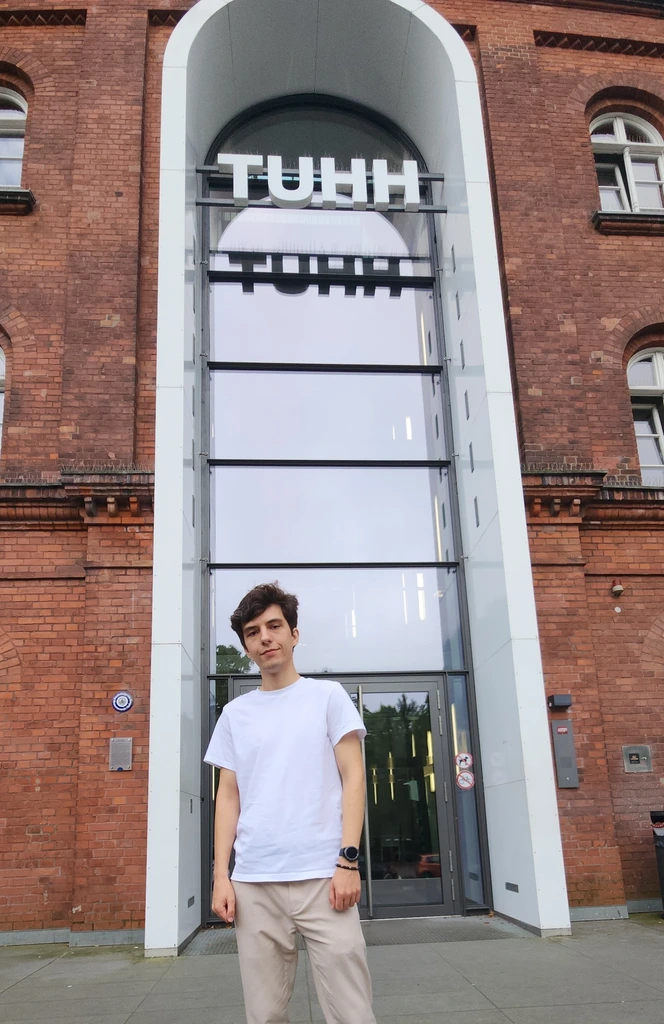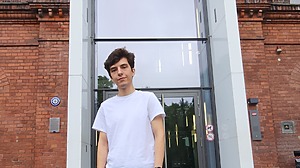“I’ve learnt that home is not a place, but people… I’m building a life that can grow, shift and stay open to what comes next. To me, that is real freedom,” says Illia Filipas, a student from the Faculty of Mathematics and Natural Sciences at Kaunas University of Technology (KTU), who has just completed his SustAInLivWork International Fellowship Programme in Germany.
When Illia began his internship at Hamburg University of Technology (TUHH) through the SustAInLivWork programme, he joined a team working on practical challenges in medical technology – specifically, how artificial intelligence (AI) could help improve surgical procedures.
It was a natural progression from his studies in Materials Physics and Nanotechnologies and his growing interest in AI. By applying his technical skills in a real-world research setting, he was able to contribute to an active project while expanding his knowledge in a fast-developing area.
“From day one, my supervisor and I sat down to outline a clear roadmap for the research stay. It was ambitious, but structured – and the final goal was to produce results strong enough to form the basis of a research paper,” he recalls.
Engineering Surgical Intelligence
With a background in programming since the age of 16 and a drive to build and understand complex systems, AI soon revealed itself to Illia as a natural extension.
“AI, I realised, was a different kind of canvas – one that was dynamic, constantly evolving, and incredibly powerful. What really pulled me in was the dynamic nature of the AI field,” he says.
At KTU, his growing interest found structure through the SKILLed AI programme and collaborative research at the Institute of Materials Science. He contributed to academic projects, helped integrate AI tools into research workflows and was even honoured with an award for one of the best presentations at a university conference.



